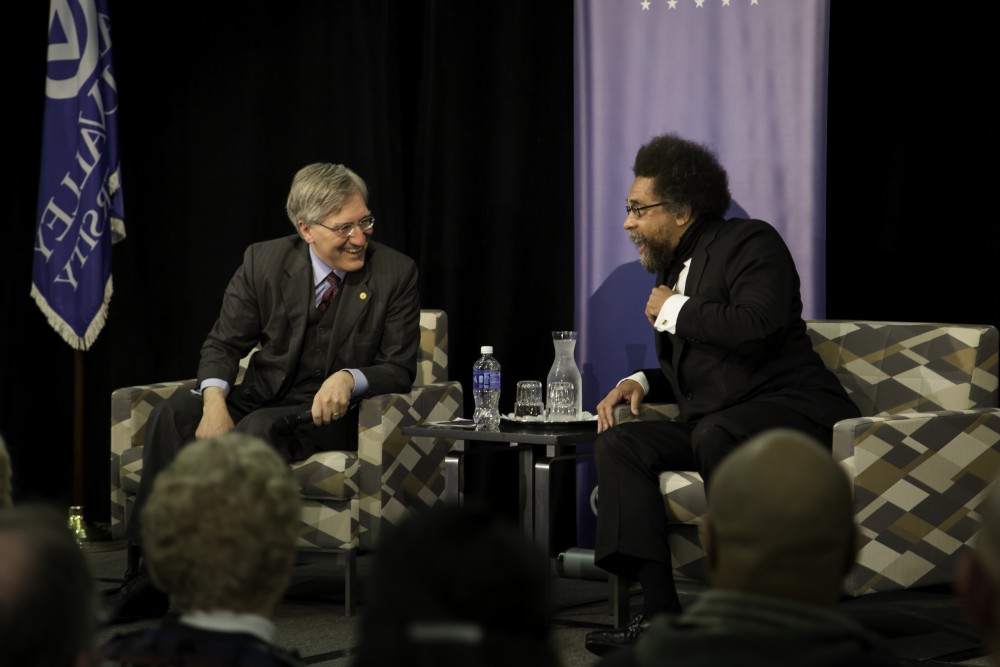Valuing disagreement

GVL/Spencer Miller Robert P. George (left) and Cornel West (right)
Apr 6, 2015
Princeton professors Cornel West and Robert George visited the Grand Valley State University Eberhard Center on Thursday to demonstrate how friendship and partnership between people who disagree can help the search for a common ground in politics.
West is a progressive race and political theorist, while George is a conservative philosopher of natural law and jurisprudence. They disagree on a lot of major issues, from politics to religion. However, West and George have found a way to collaborate at Princeton. They teach classes together, mentor students and hold a constant dialogue.
“When I see (George), I don’t see him first and foremost as a conservative thinker, Catholic philosopher, one of the major political theorists of our day,” West said. “I see him as my brother, I see him as my friend and someone who has a right to be wrong.”
The goal of discussion is truth, George said. The professors may disagree, but they encourage communication in order to find the truth. The truth they are searching for is hidden somewhere in the middle ground between both sides of the argument.
For productive communication to occur, the members of the discussion must be civil. But more importantly, George said, both parties must accept that, even in their most solid beliefs, there exists the possibility of fallacy.
“If you don’t have intellectual humility, you’re going to assume you have everything to teach and nothing to learn,” George said.
When one understands the value of intellectual humility, argument loses the idea of winning and losing. George said that when one does not see a conversational partner as an adversary, a deeper understanding is gained.
West argued that four key points surround argument: integrity, honesty, decency and virtue. In some ways, these points are often misused in the political world – deception replaces honesty and greed replaces integrity. He said there is an obsession with money, status, wealth and power. The focus should be on the kind of human one chooses to be, not the amount of money he or she makes.
“When you make that short move form your mother’s womb to tomb, what will they say at your funeral?” West said. “They’re not going to talk about how much money you made, they’re not going to talk about your trophy spouse, they’re going to talk about whether this person really was serious about their quest for integrity, honesty, decency and virtue. And we all fall short.”
Culture glamorizes power and influence, George said. However, with that power, no one pauses to ask influential questions. He argues that when individuals fall in love with fame and fortune, they lose the virtue of courage. Without courage, no one takes risks – no one asks tough questions. If no one asks hard questions, there is no search for the truth.
George and West agreed that it is important to lead by example. Virtue, integrity, honesty and decency can be passed on from person to person. West said a common ground may exist, but that does not matter if the common ground is wrong. Only by doing and by taking action can one learn and understand what the greater values of argument and communication are.






















